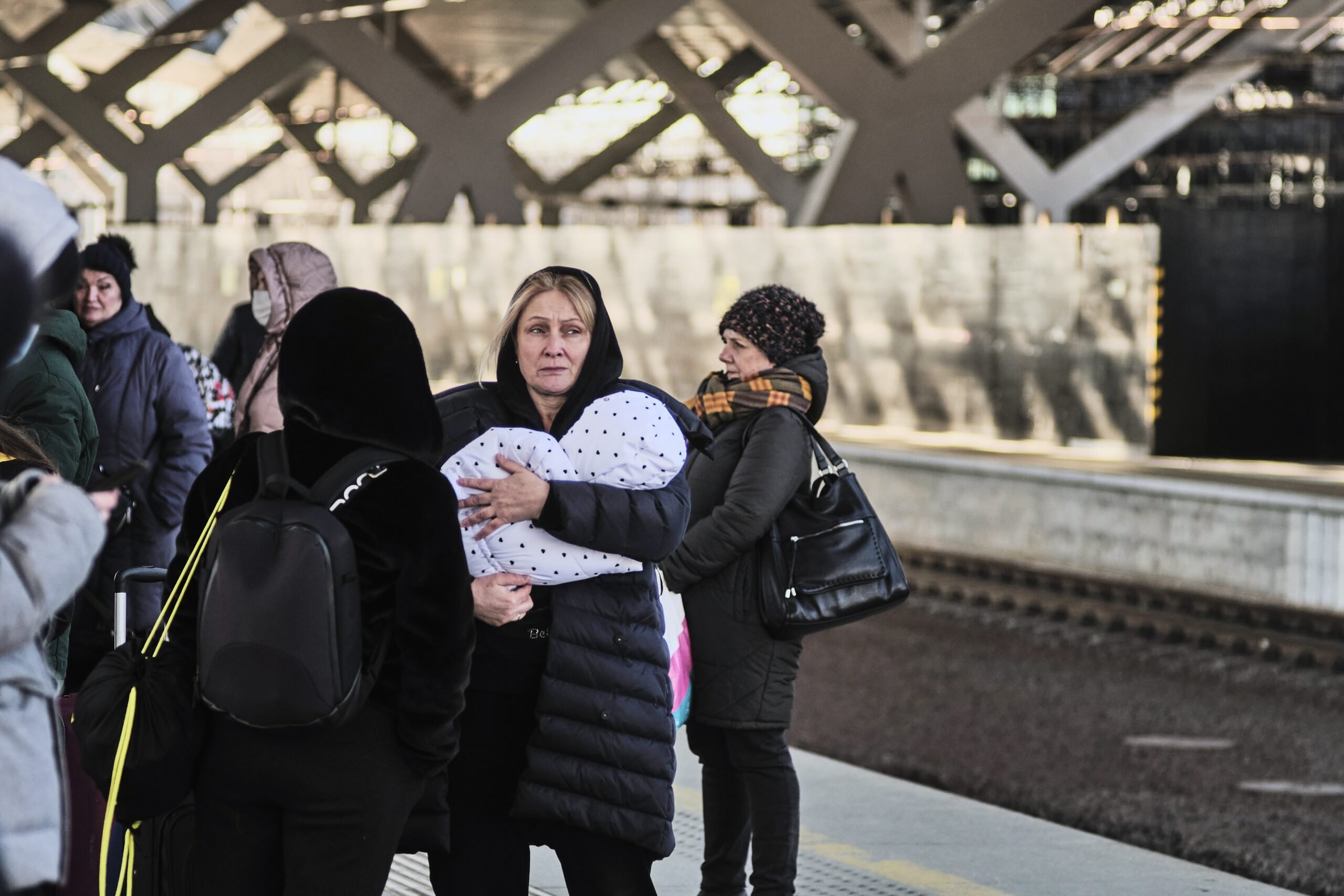
As the war in Ukraine rages on, women are being faced with seemingly impossible choices. The government is currently requiring men between the ages of 18 and 60 — conscription age, in other words — to remain behind in the country as women are allowed to flee.
Women are not only leaving their male family members behind but are being tasked with caring for children and elderly relations at the same time.
Retired teacher Nataliya Grigoriyovna Levchinka told the Associated Press, "I'm generally in some kind of a terrible dream which keeps going on. I would be in some kind of abstraction if it wasn't for my daughter. I wouldn't be able to come to my senses."
Polina Shulga, who has a 3-year-old, echoed these thoughts. She explained that she's focusing on keeping the reality of the situation from her daughter. "Of course it’s hard to travel with a child, but I explained to her that we’re going on vacation and that we’ll definitely come home one day when the war is over."
Right now Ukraine is not requiring men who are left behind the join the fight against Russia, but the country is hoping that they will voluntarily sign up.
Ukrainian President Volodymyr Zelenskyy recently spoke directly to the women who have left the country in his International Women's Day address.
He said, "Ukrainians, we usually celebrate this holiday, the holiday of spring. We congratulate our women, our daughters, wives, mothers. Usually. But not today. Today I cannot say the traditional words. I just can’t congratulate you. I can’t, when there are so many deaths. When there is so much grief, when there is so much suffering. When the war continues."
While speaking from a refugee camp in Romania, Elena Shapoval, mother of two, wept openly while admitting to being unable to fully feel her pain in this moment. "I realize that we’ll have to work a lot now," she said. "I need to get myself together because I have two children and I need to ball up my will like a fist."
A spokesperson for the UN acknowledged that the refugee crisis is growing and shifting in real time. Matthew Saltmarsh said, "The people who are coming now have less means than the people who came initially, and they’ve also experienced more likely conflict directly, so they’re probably more traumatized."




